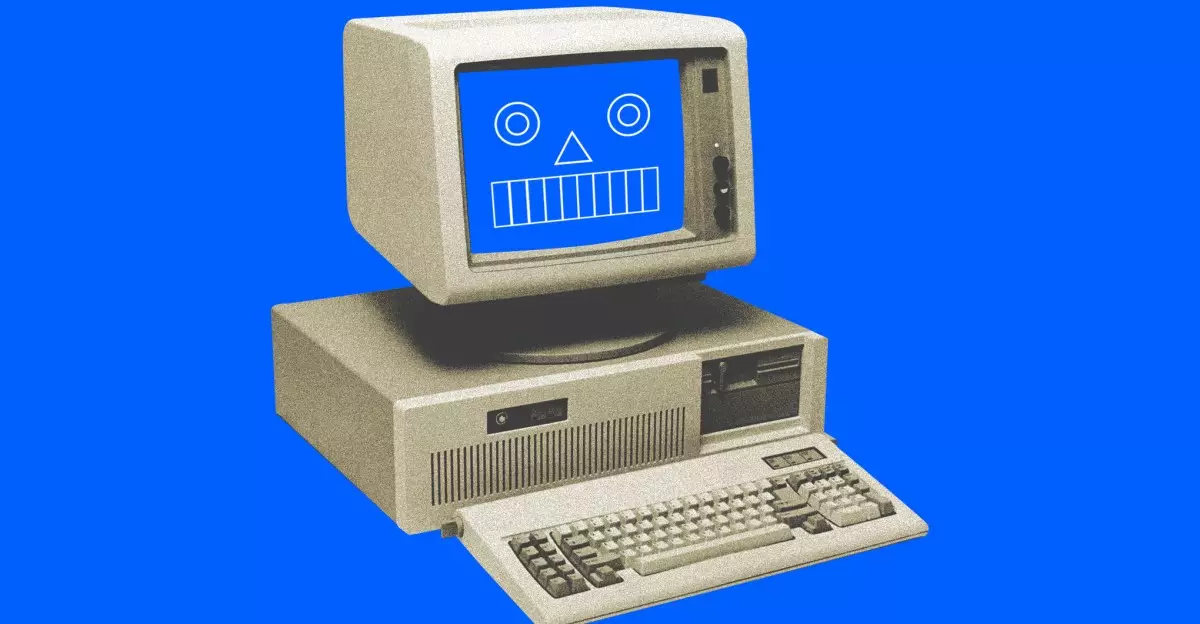In an era where Artificial Intelligence (AI) is rapidly redefining the frontiers of technology, two leading labs, OpenAI and Anthropic, are engaged in a fierce competition to claim their stake in the academic sector. This rivalry isn’t merely about technology; it’s about establishing a foundational presence in education that could influence the lives of millions of students worldwide. As an AI reporter with extensive experience, I’ve watched how the landscape of education is undergoing a seismic shift thanks to these innovations. The recent initiatives launched by both companies showcase their urgency to become the default AI tools for future generations.
Anthropic’s Entrance into Academic Innovation
On a particularly competitive Wednesday at 8 AM, Anthropic unveiled its ambitious initiative named “Claude for Education.” This new platform aims to redefine how university students engage with information, incorporating features that promote critical thinking over passive learning. The establishment of partnerships with respected institutions like Northeastern University and the London School of Economics (LSE) illustrates Anthropic’s commitment to academic integrity and equitable access to AI resources.
One of the standout features, “Learning Mode,” aims to guide students in problem-solving through Socratic questioning, encouraging them to think independently instead of simply seeking quick answers. The emphasis on critical thinking is not just a promotional gimmick; it reflects a deeper understanding of the challenges that modern students face. They need tools that empower them to navigate complex problems autonomously, and it seems Anthropic is keen to fill that niche.
OpenAI: Pioneering the AI Education Space
In comparison, OpenAI has been a player in the academic arena for a more extended period. The introduction of “ChatGPT Edu” back in May 2024 showed their foresight and strategic planning aimed at supporting college students during stressful academic phases. OpenAI’s approach has not only focused on AI literacy but also on alleviating some of the pressures inherent in higher education, particularly during exam periods.
The formation of the NextGenAI Consortium, which involved a significant financial commitment, further underscores OpenAI’s ambition to embed itself into the educational fabric of colleges across North America. By offering free access to premium features for students through its ChatGPT Plus model, OpenAI is not only breaking down financial barriers but is also fostering an educational ecosystem where AI becomes an incredibly accessible tool for learning and collaboration.
The Underlying Implications of the Competition
What’s intriguing about this simultaneous release of educational initiatives is the revelation of a profound understanding of the college demographic’s needs and pressures. According to Leah Belsky, OpenAI’s VP of Education, today’s students are tasked with learning at an unprecedented pace while navigating an AI-influenced workforce. As such, these companies are not just competing for market share; they’re trying to mold the perception and utility of AI tools within educational settings—therein lies their profound importance.
Both Anthropic and OpenAI are aware that integrating AI tools in academia is more than a technological consideration; it’s a sociocultural opportunity. Their efforts could shape the next generation’s relationship with technology at a formative period in their lives. The question remains: which of these companies will emerge as the default standard? The shift toward critical thinking and collaboration is promising, but the outcome of this rivalry may ultimately hinge on who can convincingly demonstrate the real-life benefits of their AI tools.
The Future Landscape of AI in Education
As the competition unfolds, we’re witnessing an invigorating period where the ideals of education take center stage, cloaked in cutting-edge technology. The stakes could not be higher: the winner will not only provide the go-to tools for academic success but also pave the way for how future generations approach learning, problem-solving, and life in an increasingly complex world. Make no mistake—this is not merely a contest for technical supremacy; it is a transformative movement that seeks to enhance the very fabric of education. The implications of their initiatives extend far beyond university walls, influencing how society understands knowledge acquisition, critical thinking, and technological empowerment. The road ahead is fraught with potential—and it is up to these AI startups to meet this moment with innovation, integrity, and insight.

